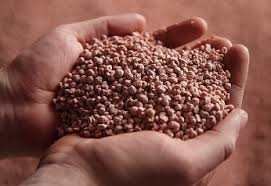
Dec . 10, 2024 13:06 Back to list
best all around organic fertilizer for vegetable garden supplier
The Best All-Around Organic Fertilizers for Your Vegetable Garden A Supplier’s Guide
Creating a thriving vegetable garden hinges significantly on the quality of the nutrients applied to the soil. As many gardeners have discovered, the best approach to achieving a bountiful harvest is through the use of organic fertilizers. Not only are they environmentally friendly, but they also improve soil health, promote soil biodiversity, and yield nutritious vegetables. In this article, we’ll explore some of the best all-around organic fertilizers available, along with guidance on selecting suppliers that offer these essential products.
Understanding Organic Fertilizers
Organic fertilizers are derived from natural sources such as plants, animals, and minerals. Unlike synthetic fertilizers, which often lead to soil degradation and pollution, organic options enrich the soil's structure and promote its biological activity. They provide a slow-release of nutrients, which helps sustain plant growth over an extended period.
The key to a successful vegetable garden lies in understanding the nutrient needs of your plants. Major nutrients essential for plants include nitrogen (N), phosphorus (P), and potassium (K). Secondary nutrients such as calcium, magnesium, and sulfur, as well as micronutrients like iron and manganese, are also crucial. A balanced organic fertilizer can help ensure that your vegetable plants receive the appropriate nutrition throughout their growth cycles.
Top Organic Fertilizers for a Vegetable Garden
1. Compost One of the most versatile organic fertilizers is compost, which is made from decomposed organic matter. It enriches the soil, improves moisture retention, and provides a wide range of nutrients. Homemade compost can be created from kitchen scraps, yard waste, and other organic materials, making it a sustainable option.
2. Manure Animal manure, particularly from herbivores like cows, horses, and chickens, is an excellent source of nutrients. It adds nitrogen, phosphorus, and potassium, while also enhancing soil structure. However, it's important to ensure that the manure is well-composted to avoid pathogens and excessive salt levels.
3. Fish Emulsion Rich in nitrogen and trace minerals, fish emulsion is a liquid fertilizer made from byproducts of the fishing industry. It promotes rapid growth and is particularly beneficial for leafy greens. It’s an organic choice that quickly nourishes plants but should be used sparingly due to its strong odor.
4. Bone Meal This organic fertilizer is an excellent source of phosphorus, which is vital for root development and flowering. Bone meal is highly concentrated and should be mixed into the soil prior to planting. It is particularly effective for flowering vegetables like tomatoes and peppers.
best all around organic fertilizer for vegetable garden supplier

5. Kelp Meal Harvested from the sea, kelp meal is rich in micronutrients and growth hormones that support healthy plant development. It can be used as a soil amendment or mixed into fertilizer applications to boost overall availability of nutrients.
6. Worm Castings Also known as vermicast, worm castings are the nutrient-rich excrements of earthworms. They contain beneficial microorganisms and are incredibly effective at improving soil fertility and structure while promoting strong plant growth.
Choosing a Supplier
When seeking the best organic fertilizers for your vegetable garden, it's crucial to find a reputable supplier. Here are some tips
- Look for Certifications Ensure that the products offered by the supplier are certified organic by relevant authorities, which guarantees they meet specific standards for organic production.
- Research Local Sources Consider purchasing from local suppliers who offer bulk options or community-supported agriculture (CSA) programs. This not only reduces transportation emissions but also supports local economies.
- Read Reviews Customer testimonials are invaluable. Research online reviews and seek recommendations from fellow gardeners to gauge the quality and effectiveness of a supplier's products.
- Inquire About Sourcing A good supplier should be transparent about where their products come from. Organic fertilizers should ideally be sourced from sustainable practices and free from harmful chemicals.
In conclusion, using the right organic fertilizers in your vegetable garden can lead to healthier plants and more productive harvests. Whether you choose compost, manure, fish emulsion, bone meal, kelp meal, or worm castings, these organic options will help nourish your garden sustainably. Choosing a reputable supplier will ensure you have access to high-quality products that can make a significant difference in your gardening success. Happy gardening!
-
Premium Organic Manure Compost for Eco Gardens
NewsAug.01,2025
-
Organic 10-10-10 Fertilizer | Balanced Plant Nutrients
NewsJul.31,2025
-
Premium Amino Acid Fertilizer | Rapid Plant Growth Booster
NewsJul.31,2025
-
10 10 10 Fertilizer Organic—Balanced NPK for All Plants
NewsJul.30,2025
-
Premium 10 10 10 Fertilizer Organic for Balanced Plant Growth
NewsJul.29,2025
-
Premium 10 10 10 Fertilizer Organic for Balanced Plant Growth
NewsJul.29,2025
